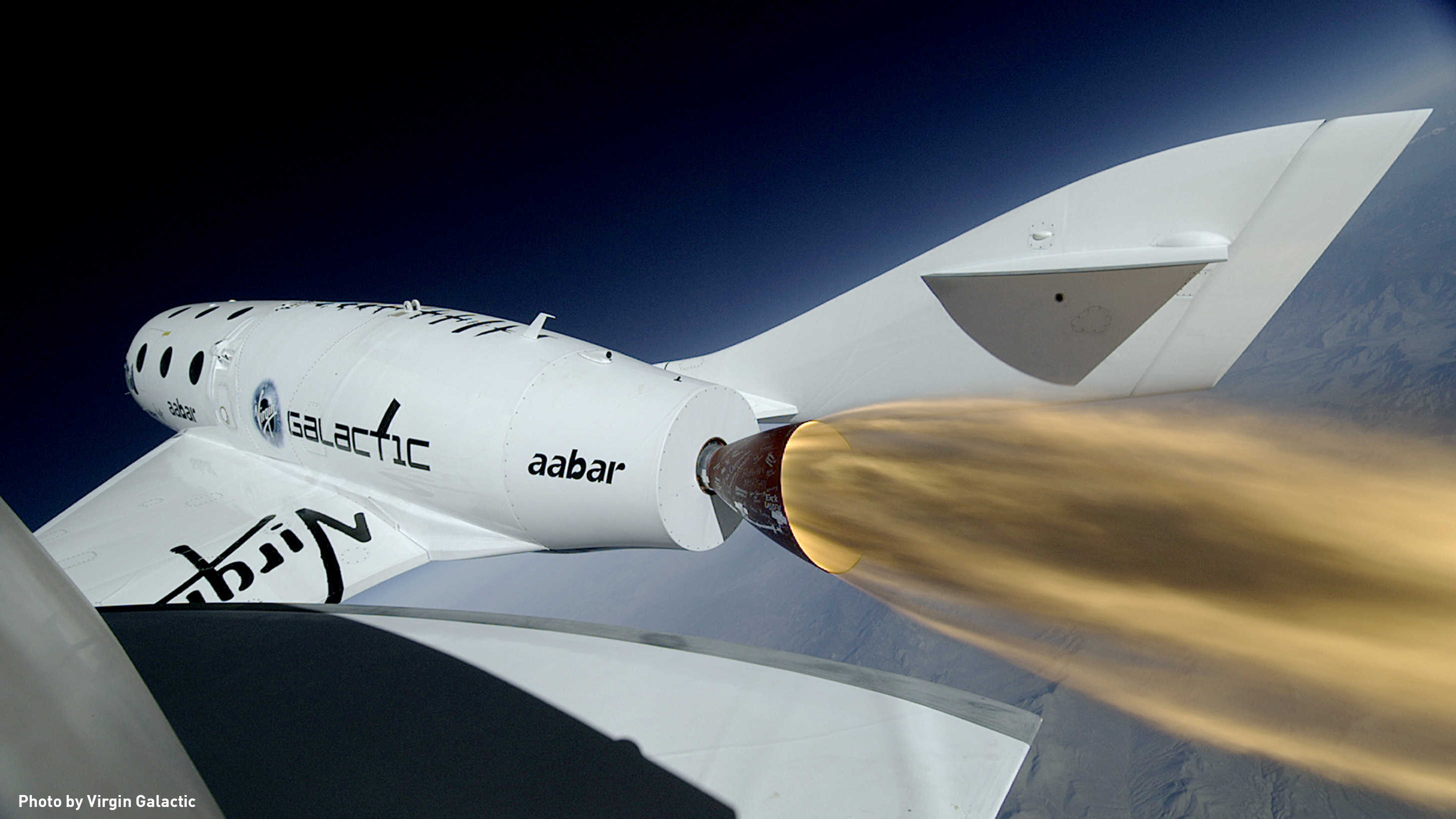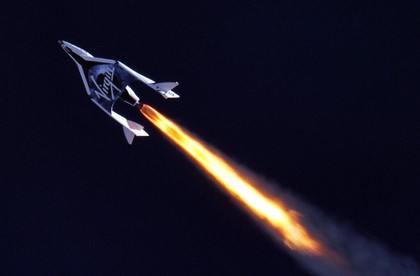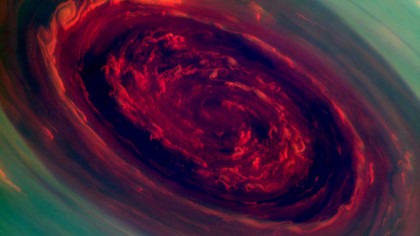
Space came just a little bit closer for the everyman this week, as Virgin Galactic's ship made one 1,470kph-leap towards space in its first successful flying rocket test.
If that wasn't enough, we've also seen the beautiful, but incredibly deadly, storms at Saturn's north pole for the first time, and found a potential cure for diabetes. All that and more in another exciting Week in Science.
SpaceShipTwo breaks the sound barrier -- Things in the space tourism industry just got interesting. In its first proper rocket-powered test flight, Virgin Galactic's SpaceShipTwo underwent a 16-second burn propelling it to an altitude of 16.7km at some 1,470kph, just bre'aking the sound barrier, before making a smooth and controlled landing. According to Virgin's Richard Branson, the successful test clears the way for the very real goal of suborbital, edge-of-space tourist trips before the year is out.
SpaceShipTwo will eventually burn for 70 seconds propelling six passengers and two pilots up to an altitude of 100km, or the edge of space, giving passengers 5 minutes of weightlessness for a mere $200,000 a flight. [Virgin Galactic]

New liver hormone might 'cure' diabetes -- Diabetes is one of the biggest problems of modern developed-world life. Both sugar-rich diets and old age bring with it risk of developing diabetes and being stuck injecting insulin for the rest of your life. Now a new hormone found in the liver could be a cure, as it has the ability to spur growth of insulin-secreting cells in the pancreas.
Betatrophin was found to vastly increase the production of pancreatic β cells -- the ones responsible for secreting insulin into your blood -- in mice. A monthly, or possibly yearly injection of betatrophin could be enough to prevent the need for daily insulin injections in type-2 diabetes sufferers, and could even help patients with type-1 too. The best thing about betatrophin as a possible treatment would be the fact that the patients would be induced into producing their own insulin, which would reduce complications and make diabetics' blood glucose levels much more stable. [Cell]
Saturn's massive cyclone puts Earth's hurricanes to shame -- For sheer size and violence, Saturn's enormous cyclone spinning around the planet's northern pole totally surpasses even Earth's most destructive hurricanes. It's over 2,000km wide, with wind speeds of 500kph, making it 30 times larger and twice as fast as even the Category 5 beasts back here on Earth. However, it is also absolutely stunning, as captured by NASA's Cassini spacecraft. Immense destructive power has never looked so beautiful. [NASA]
Sign up for breaking news, reviews, opinion, top tech deals, and more.

[Image credit: NASA]
Smoking shisha is much, much worse than cigarettes -- Smoking flavoured tobacco and fruit mixtures through water pipes has become commonplace in certain types of bars across the UK and US. Stemming back 100s of years ago in India, the Middle East and North Africa, the tradition of smoking through water pipes is often thought of as safe.
However, new research points to the exact opposite, as the water pipes deliver more carbon monoxide and carcinogens into the smokers' lungs than traditional cigarettes. The extremely harmful chemicals were found in higher quantities in both the smoke and the smokers' bodies. In fact, researchers found three sessions of shisha, or hookah as it is also known, was worse for you than smoking 11 cigarettes a day. [CEBP]

[Image credit: seansharifi via Flickr]
Gene therapy is go for heart-failure treatment -- A clinical trial containing more than 200 people with heart failure is about to kick off with a new form of gene therapy. By dosing the patients with a virus that injects a gene called SERCA2a into the heart, researchers hope to repair the damaged heart tissue. The inserted gene will reset the control of calcium in broken hearts, helping them to beat correctly again. Having been successful in previous smaller trials, the pioneering technique could provide a partial fix for heart failure, and give suffers a modicum of a normal life without the need for a heart transplant. [New Scientist]